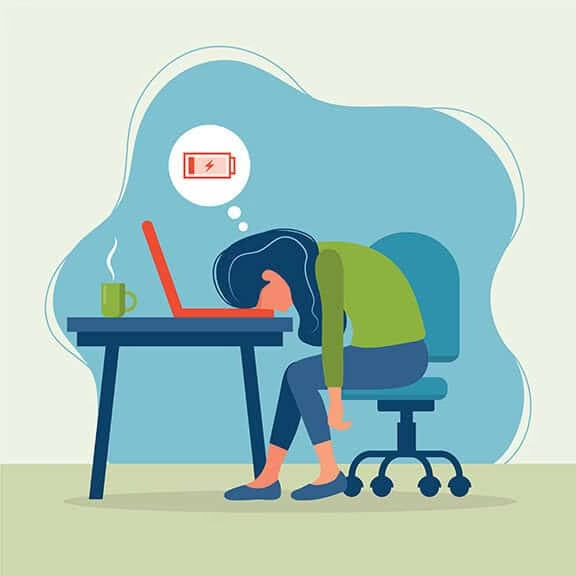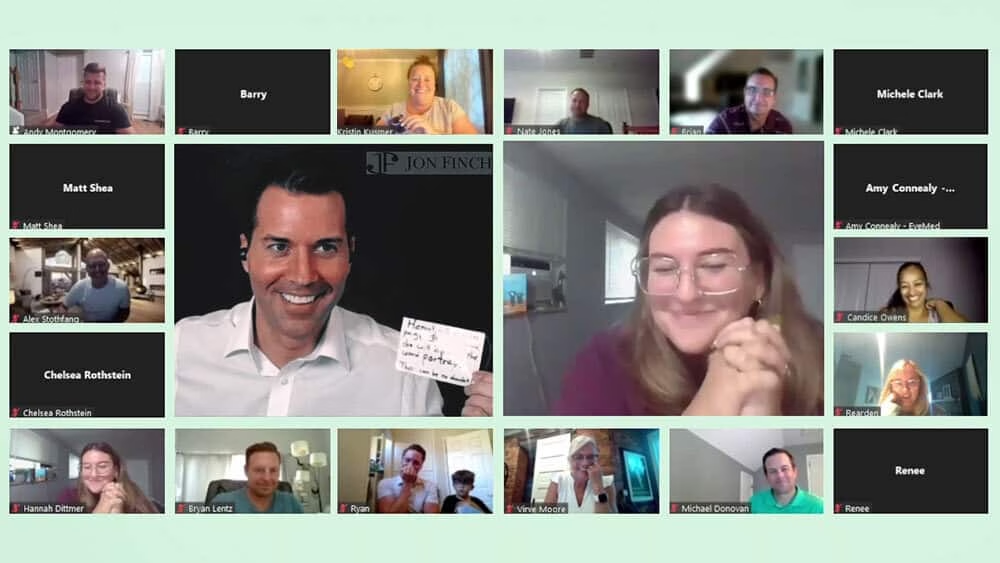
What makes online meetings more exhausting than face-to-face meetings?
The Intense focus on words and sustained eye contact is exhausting and can lead to Zoom fatigue. People believe they must exert greater emotional effort to appear interested in the absence of many nonverbal cues.
Endless Zoom
Platforms like Zoom are useful. But all this time spent on video calls has its problems. We rely on it to connect with people, it can leave us feeling tired and empty. It has provided us with some semblance of normalcy during the lockdown, but it can make relationships appear unreal. This sensation has sparked speculation about a new psychological ailment known as “Zoom fatigue.” Our brains have to work much harder when we interact with another person through a screen. We miss many other cues that we would pick up in a real-life conversation, such as the smell of the room or detail in our peripheral vision. This additional data assists our brains in making sense of what is going on. When we lose that extra information, our brains have to work harder to make sense of what is going on. This can put us at a disadvantage at times. A meta-analysis of job interviews. Discovered that people performed worse when interviewed via video link than in person. More info

Why is Zoom exhausting?
The stress has grown in the months since covid-19 lockdowns and remote-work requirements imposed a new way of life and work on the majority of white-collar workers in the united states. Many people were shown by the abrupt change that technology setups that were adequate for evening and weekend workloads were not suitable for 50-hour or 60-hour workweeks with no backup. The restrictions on shelter-in-place prompted some academics and other researchers to investigate a problem that affected workers during the pandemic — Zoom fatigue. Source It is more exhausting to watch what we call the brady bunch view, or all the squares on a videoconference than it is to interact with the same number of people in person,” staut said. “you’re attempting to concentrate on everyone of those boxes. If there are 16 people on a videoconference, and you can see all their faces at the same time, your brain is trying to read their body language, all at the same time, and it is exhausting.
Why does Zoom exhaust you? Science has an answer
The affliction that’s come to be known as “Zoom fatigue” is way more than a byproduct of many meetings. Social scientists say it’s the result of the sudden mass adoption of technology that’s disrupting the normal, instinctual and finely-tuned way of communicating that developed to help humans survive. “we’ve evolved to get meaning out of a flick of the eye. Our species has survived because we can produce those signals in a way that’s meaningful,” says jeremy bailenson, professor and director of stanford university’s virtual human interaction lab. “Zoom smothers you with cues, and they aren’t synchronous. It takes a physiological toll.”
The reason Zoom calls drain your energy
Our brains can only do many things consciously at once, because we have limited working memory. In contrast, we can process much more information unconsciously, as we do with body language. Meeting online increases our cognitive load because several of its features take up a lot of conscious capacity. Video meetings take up a great deal of cognitive resources, leaving us feeling frustrated and drained.
Many Zoom meetings
Opening your work calendar on a Monday morning is fraught with anxiety. You sigh as you stare at the colorful squares blocking off hours of your time throughout the day, and the awkward intervals between the squares confirm that getting any real work done will be difficult. What is the most vexing? The majority of these meetings are unnecessary. More than being expensive, useless meetings are a quick way to stunt team productivity. Across industries, research shows it takes 25 minutes to return your concentration back to an original task after a interruption. Meetings increase the likelihood of people making mistakes during a task because they overlook or repeat important components. In one survey, 65% of workers said meetings prevent them from finishing their own work.
